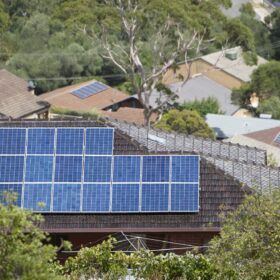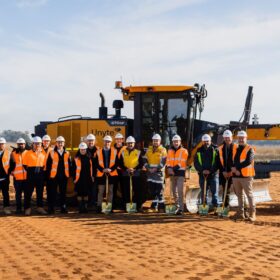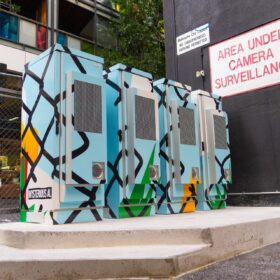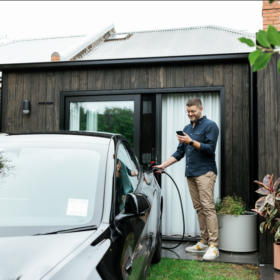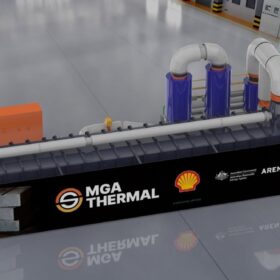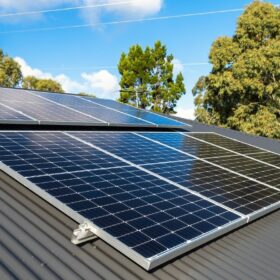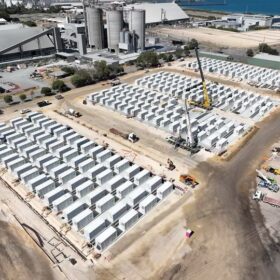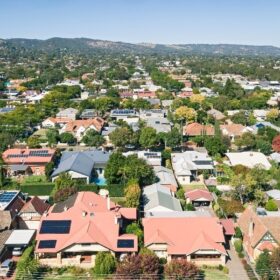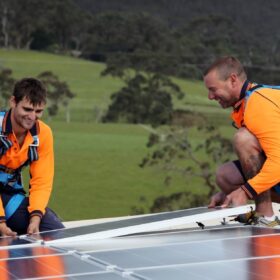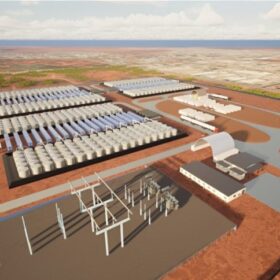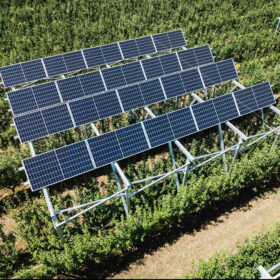Queensland to pilot second local renewable energy zone
The Queensland government is investing another $40 million into a second 8.4 MW / 18.8 MWh battery energy storage system, up to 2.8 MW of solar and 0.9 MW of demand management for a Townsville local renewable energy zone.
ACLE begins building first in 270 MWh battery project pipeline
Australian EPC contractor ACLE Services has broken ground on a 5 MW / 10 MWh battery energy storage project in northern Victoria that is the first in a planned pipeline of 27 batteries that will be rolled out across regional Australia delivering a combined capacity of 270 MWh.
Melbourne connects first battery as part of planned city network
The first of three planned 150 kW battery energy storage systems that are to form a combined 450 kW / 1 MWh capacity coordinated battery network across inner Melbourne has been switched on.
Batteries on wheels trial gets $3.2 million boost
Over the next three years energy retailer and tech company Amber Electric will trial a software solution for electric vehicle smart charging and bi-directional vehicle-to-grid services to enable consumers using their cars can buy and sell energy to the grid.
Thermal energy storage tech to bolster industry decarbonisation
Long duration energy storage developer MGA Thermal is one step closer to commissioning its behind-the-meter demonstration plant after receiving a $2.48 million windfall from the Australian Renewable Energy Agency.
Virtual power plant connects to community housing
South Australia’s virtual power plant has partnered with community housing provider, Unity Housing, to supply low cost energy to disadvantaged tenants, as part of its fourth phase to connect more than 7,500 households with clean energy.
Sunshine Coast to host Australian first local renewable energy zone
A “nation first” local renewable energy zone will be established on Queensland’s Sunshine Coast as part of a pilot program designed to boost rooftop solar generation, store it and share it locally across the poles and wires infrastructure that already exists.
AEMO calls for sustained investment as WA power supply outlook improves
The Australian Energy Market Operator has eased forecasts of a looming capacity shortfall in Western Australia’s main electricity grid but has warned of the need for “substantial and sustained” investment in renewables to replace coal-fired power stations and meet surging demand from customers electrifying their operations.
AGL tips $150 million into UK-born smart energy platform
Energy major AGL will invest $150 million for a 20% stake in smart energy platform Kaluza in a move the utility hopes will radically transform its retail operations and deliver significant savings.
CEC calls for new policies to support increased uptake of rooftop solar, home batteries
The Clean Energy Council is calling for a unified national strategy to “supercharge” the uptake of consumer energy resources including rooftop solar and home batteries in Australia, saying such a move would deliver more than $22 billion in savings and 18,200 extra jobs by 2050.
